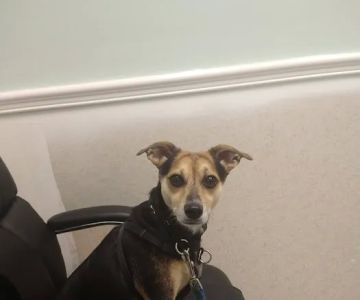Is "Veterinarian" a Proper Noun? Understanding Capitalization Rules
When you’re learning English grammar, one of the most common questions that arise is about proper nouns. Whether you’re writing or speaking, it’s important to know when and why to capitalize certain words. A term that often sparks confusion is "veterinarian." So, is "veterinarian" a proper noun? Let’s dive into the rules and context behind the capitalization of this term and other similar words.
1. What Is a Proper Noun?
To understand whether "veterinarian" is a proper noun, let’s first define what a proper noun is. A proper noun is a specific name of a person, place, or thing that is unique and usually capitalized. Proper nouns stand out because they refer to particular individuals, organizations, geographic locations, or distinct things. Examples include names like "John," "Paris," or "Coca-Cola." These words are always capitalized in English writing.
2. Common Nouns vs. Proper Nouns
In contrast, a common noun refers to a general item or concept, not a specific one. For example, words like "dog," "city," or "school" are common nouns. These are not capitalized unless they begin a sentence or are part of a title. This distinction is key to understanding how to properly treat words like "veterinarian."
3. Is "Veterinarian" a Proper Noun?
Now, let’s get to the heart of the matter: is "veterinarian" a proper noun? The short answer is no. "Veterinarian" is a common noun because it refers to a profession or a category of people, not a specific individual. Therefore, it’s only capitalized when it’s the first word in a sentence or part of a title. For example:
The veterinarian was kind and helpful. (Here, "veterinarian" is not capitalized because it is referring to a general profession.)
Dr. Johnson, the Veterinarian, gave us advice on caring for our dog. (In this case, "Veterinarian" is capitalized because it’s part of a title or specific reference.)
4. The Role of Titles in Capitalization
It’s also essential to understand the role that titles play in capitalization. When referring to a specific person or their role in a particular context, a title like "veterinarian" can be capitalized. For example, when you refer to someone as "Dr. Smith, the Veterinarian," "Veterinarian" becomes part of the person’s professional title, thus it is capitalized. However, if you are just discussing the profession in general, the word remains lowercase.
5. Other Professions and Capitalization
Let’s look at other similar terms for comparison. "Doctor" and "Teacher" are also common nouns unless used as part of a formal title or in a sentence where they are directly addressing or naming a person. For instance:
The teacher explained the lesson thoroughly. (Here, "teacher" is a common noun and not capitalized.)
Professor Collins, the Teacher of the Year, was awarded a medal. (Here, "Teacher" is capitalized because it’s part of the official title.)
6. Why It’s Important to Know the Difference
Knowing the difference between common and proper nouns helps with both clarity and correctness in your writing. Capitalizing words unnecessarily can make your writing appear unpolished or inconsistent. For instance, capitalizing "veterinarian" when it’s not part of a title or sentence start could confuse readers into thinking you are referring to a specific place or name rather than a general profession.
Similarly, using proper nouns accurately can lend more specificity and importance to what you are referring to, especially when it’s a person’s name, a brand, or a city. Whether you’re writing an essay, an article, or a simple email, following these capitalization rules is crucial for professionalism and precision.
7. Common Mistakes in Capitalization
There are several common mistakes that people often make with capitalization, including:
- Capitalizing common nouns unnecessarily, like "veterinarian" in non-title cases.
- Not capitalizing titles when they are used as part of a name, like “Dr.” or “Veterinarian” when referring to a specific person.
- Mixing up the capitalization rules between professions and actual names.
To avoid these mistakes, it's important to always ask yourself whether you're referring to a general category or a specific name. If it's a general reference, keep it lowercase. If it's a specific reference, then capitalization is needed.
8. Conclusion: Mastering Capitalization
Understanding whether "veterinarian" is a proper noun boils down to recognizing the difference between a title or specific reference and a general term. As you continue writing, keep in mind the basic rules of capitalization: proper nouns (specific names) get capitalized, while common nouns (general terms) do not. This simple rule can help improve your writing clarity and professionalism.
Mastering capitalization rules not only improves your grammar but also enhances the readability and flow of your content. By following these guidelines, you'll be well on your way to becoming a more effective communicator.











